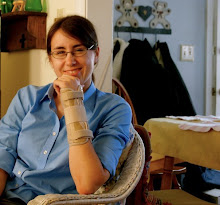And epic it truly is. In Avatar, Cameron truly creates a whole new world for his viewers. The quality of the film-making, the CGI techniques, the acting, the plot, the effects-- all are more than above par, and all become even better when you see the movie in 3-D. After putting on the 3-D glasses, viewers are quickly sucked in to the moon of Pandora, to the struggles between the human invaders and the native Na'vi population.
Sam Worthington delivers an impressive performance as Jake Sully, a paraplegic ex-Marine who replaces his recently deceased brother on the mission to Pandora, merging with his brother's Na'vi avatar and getting adopted into and slowly accepted by the local Na'vi clan. His teacher in the ways of The People is the chief's daughter, Neytiri, played to near-unrecognizable perfection by Zoe Saldana.
Most movie buffs agree that plot and script are not James Cameron's strongest abilities as a filmmaker, and to some extent that holds true in Avatar. In my opinion, I would say that although the script is fairly weak, he does get some great one-liners in, and the plot is also fairly strong. Parts of the story quite honestly harken back to a Pocahontas-style narrative, with greedy corporate humans coming in to drive out the native population by any means necessary in order to obtain the not-quite-cleverly-named "unobtainium," a tremendously valuable substance back on earth. Then of course you have the "Colors of the Wind" moments during which Jake begins to understand and appreciate-- and become part of-- the natural world of Pandora. When critics call it a tree-hugger liberal environmentalist film, I confess they have a point. Cameron clearly wants the audience's sympathies to be with the Na'vi people and their allies-- very few of the human characters are likable at all, unless you happen to have either a dollar sign or a gun for a heart.
But here's the thing-- most viewers probably won't really care about that, regardless of their political leanings. Because this movie is just that good. The visual effects alone will knock you back in your seat. The vistas off the mountains and waterfalls-- of which there are many-- are especially impressive. Cameron's Pandora is a spectacularly beautiful place, and I'm sure that if there isn't already, there will soon be a Facebook group called "I Want to Move to Pandora" or something along those lines. Then you have the not-unimpressive battle scenes, the love story between Jake and Neytiri, tragedies, some cynically comic dialogue-- all this plus the political intrigue makes for a movie that almost everybody will like.
Bottom line: Go see Avatar. And pay the extra money to see it in 3-D on the biggest screen you can possibly find (IMAX, if you can). It is truly worth it for the feeling of escaping the confines of Earth for three hours.




